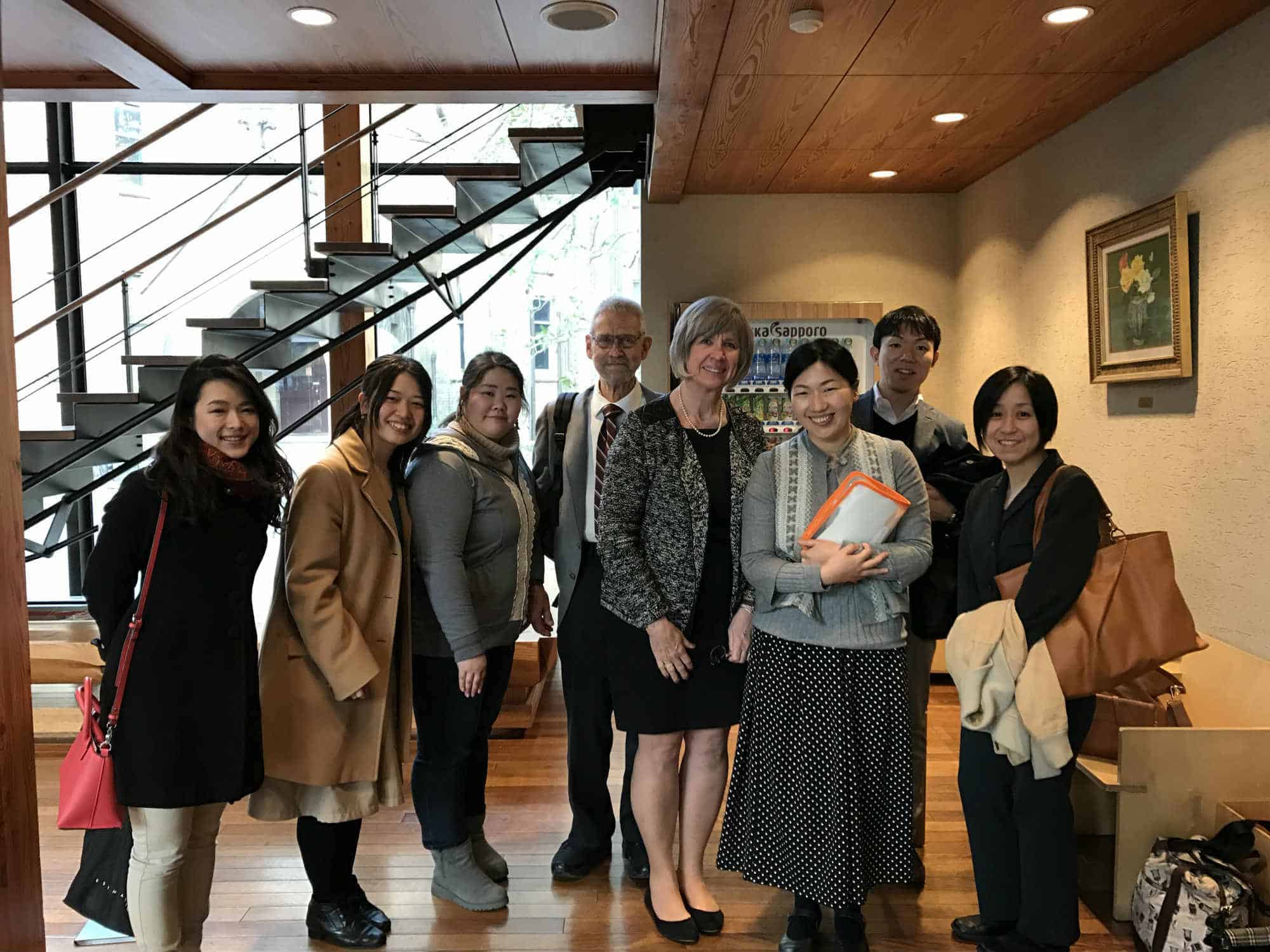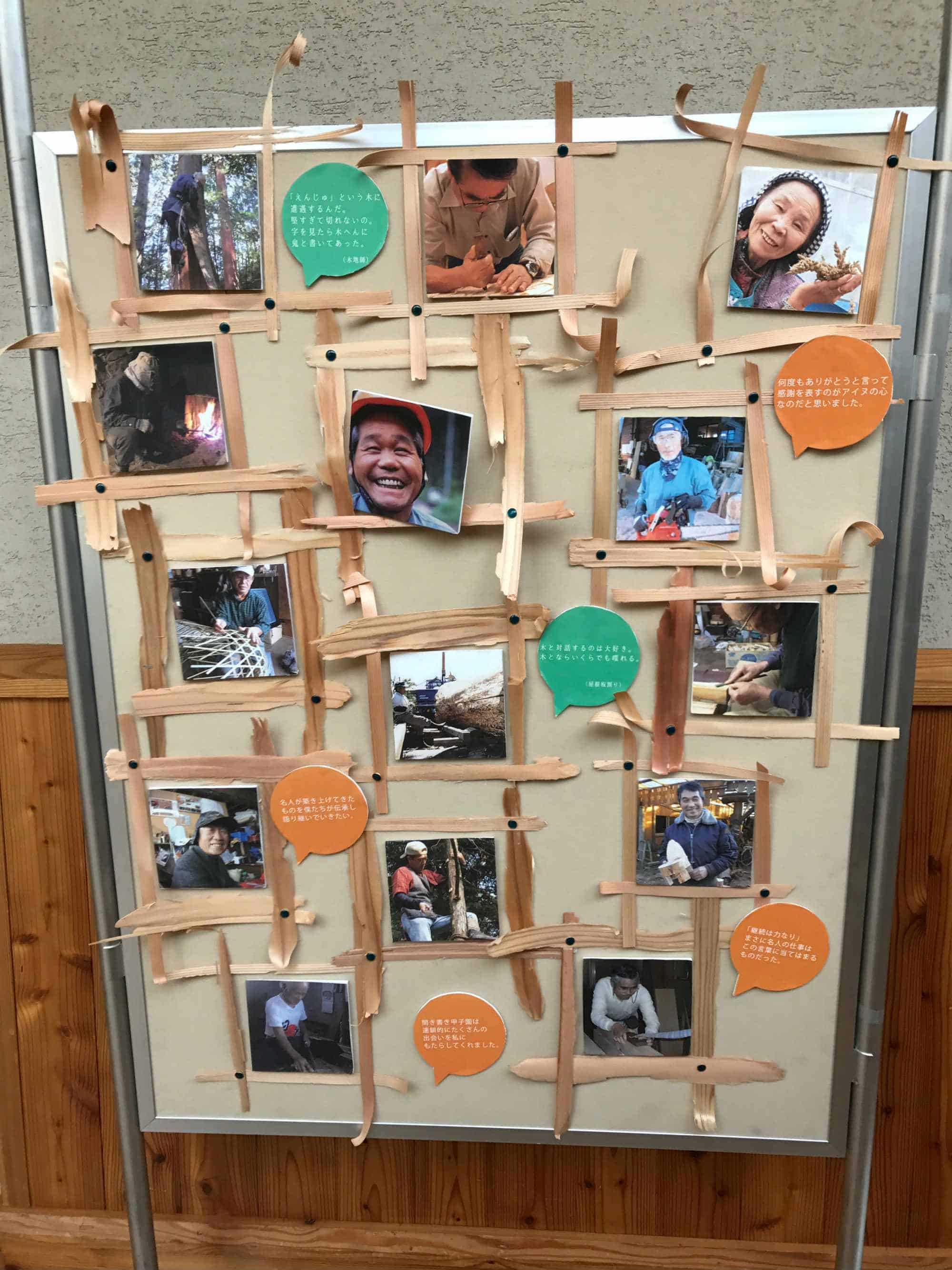
Daisuki Fujii, a student from Japan who took the Foxfire Approach course in 2008, asked that we make the keynote address at the symposium celebrating the fifteenth year of the Kikigaki Koshien project. The sponsor of the symposium, Kyono no Mori, requested Foxfire representatives from the U.S, since the project was inspired by Foxfire.
The short version of how Kikigaki got started: In 2001, the Ministry of Forests of Japan announced its concern that the skills and worldviews of the men and women who made their livelihood working in the forests was being eclipsed by the urbanization and modernization of Japan. Kyono no Mori, a non-profit organization, announced that it would support projects that addressed this issue.
Shiono Yonematsu had just returned from a fly-fishing trip to the U.S. where he had received a Foxfire book that included interviews with people who worked in the forests of Appalachia. He proposed a project in which high school aged young people would interview and document (kikigaki) veteran workers in the forests of Japan. His proposal was approved.
Each year since 2002, 100 students have participated in Kikigaki Koshien. The subjects of their interviews now include a wide range of traditional crafts and occupations, such as ocean-going canoes, various implements crafted from wood, thatched roofing, etc. The interviews and documentation span several days, with students returning to gather more information. Note that this project is not based in schools.

The symposium ran three days, March 18-20. Current Kikigaki students comprised most of the audience on March 18, which featured a number of speakers celebrating the work of Kikigaki Koshien. Awards were presented to several Kikigaki students from previous years in recognition of their achievements. Notable among those awards was the student who documented the weaving skills of a woman from the Ainu culture, an indigenous tribe often treated harshly by the Japanese.
March 19 included a variety of meetings focused on various student projects, so there was no opportunity for our involvement. We spent the day with our family from South Korea, including a memorable walk thru the Tokyo Fish Market, the best sushi dinner ever, and sustained observation of a St. Patrick’s Day Parade.
On March 20, as the featured event, we described the 50 years of the Foxfire Magazine project, the 30-year development of the Foxfire Programs for Teachers, and our admiration of the Kikigaki Koshien project.
Our highly skilled translator, Mizuki Nakamura, stayed with us for the panel discussion that followed our presentation. The discussion featured two representatives of the education establishment and three representatives of Kikigaki Koshien on the question of whether that project should take place in schools. The exchange was spirited and affable, with no agreement on the question.
Our reflection on this extraordinary experience is that Foxfire and Kikigaki have much to learn from each other.
~ Hilton Smith & Sara Alice Tucker
Hilton Smith is a professor of education at Piedmont College and is the coordinator for the Foxfire-Piedmont Partnership for Programs for Teachers. Sara Alice Tucker is an associate professor of education at Piedmont College and is a contributor to The Foxfire Approach: Inspiration for Classrooms and Beyond. Hilton and Sara married in 2008 after first connecting at a romantic rendezvous at the Foxfire Fall Festival.